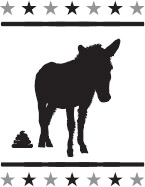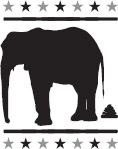Uncle John’s Bathroom Reader Zipper Accidents (39 page)
Read Uncle John’s Bathroom Reader Zipper Accidents Online
Authors: Uncle John’s

O
n Halloween 2012, Donald Green was at his girlfriend’s house in Royton, England, handing out candy to trick-or-treaters. Three little kids came to the door, and Green reached into his pocket for bags of Gummi Bears that his girlfriend had given him to hand out. But Green reached into the wrong pocket and grabbed three little baggies of cocaine, and dropped
those
into the trick-or-treaters’ goody bags.


The kids’ father, it turned out, was an off-duty police officer, so when he saw his children playing with little baggies of coke later that evening, he confiscated the drugs. “Where did you get these?” he asked. “At the last house we went to,” replied his daughter.
Meanwhile, back at the girlfriend’s house, Green reached into his pocket for the drugs (which he’d purchased earlier that day for £200) and discovered his mistake. In a panic he drove all over town looking for the kids, but couldn’t find them. So he went back to his girlfriend’s house, and not long after, the police showed up. “I know why you’re here,” Green said sadly after he opened the door. He was arrested and sentenced to 130 hours of community service.
A
fter photographing several UK cities for Street View, Google fielded hundreds of complaints from citizens who inadvertently wound up in photos—including a man caught exiting a sex shop, a man throwing up outside of a pub, and a group of teenagers getting arrested.
•
Sharp-eyed Google Earth users noticed a collection of 40-year-old buildings in Southern California that, from above, resembled a Nazi swastika. The owner of the structures: the U.S. Navy (the buildings were barracks on a military base). The Navy spent $600,000 to redesign the facility.
•
While photographing for Street View in Melbourne, Australia, Google’s car-mounted cameras captured a man passed out in the street in front of his mother’s house. The man, who’d had too much to drink after a funeral, later complained. Google removed the photos.
•
Users scrolling through pictures of upstate New York on Street View noticed a fawn standing in the middle of a rural road. But in subsequent shots, the deer was lying in the road, dead, with blood-soaked tire tracks leading away from it. Google’s camera car, it turned out, had accidentally hit it. The company
kept the images but edited out the deer.


•
If you look closely, you can spot hundreds of photos that caught people urinating in public, including one with a French bus driver photographed relieving himself on the side of his bus.
•
One female Google Earth user was looking at photos of a girlfriend’s house—and spotted her own husband’s Range Rover out front. Divorce proceedings followed.


ALMOST PRESIDENT
After a failed presidential run in 1836, Whig leader and former senator William Henry Harrison was selected by his party’s convention to run for president again in 1840. This time, he won. The race for vice president, however, ended in a tie between Senator John Tyler and convention chairman John Janney. Janney, doing the gracious and honorable thing, stepped aside as convention leader and ceded the VP slot to Tyler. Then Harrison died after 32 days in office, having caught pneumonia at his own inauguration. Tyler became the new president, a role he technically won by a single vote: Janney’s.
I
n its ongoing effort to get every human alive to eat at McDonald’s, the fast-food giant’s ad team erected a billboard in St. Paul, Minnesota, with a picture of an Egg McMuffin and a cup of hot coffee next to these words:
Yuavtxhawbpabraukojsawv
yuavntxivzograukoj mus
A bewildering string of gibberish? Yes, especially in the language it’s supposedly written in. The text was Hmong, to appeal to St. Paul’s Hmong community, an ethnicity from the mountainous regions spanning China, Vietnam, Laos, and Thailand.
The ad backfired. That’s because whoever translated the words into Hmong botched the spelling, grammar, syntax, and punctuation. It was supposed to say, “Coffee Gets You Up, Breakfast Gets You Going.” But in Hmong, it read something like “Coffee up you, breakfast go you.” Or, more accurately, “coffeeupyou breakfastgoyou,” because the sign didn’t include the spaces that go between words in most languages, including Hmong.
A McDonald’s spokesperson apologized for the nonsensical billboard. Then they fixed it so that it made sense in Hmong.
A
stand-up guy.
In September 2008, vice-presidential candidate Joe Biden was speaking at a rally in Columbia, Missouri, when he began going through a list of names of local politicians who were in attendance, thanking them from the stage and getting the crowd to cheer for them. “Chuck Graham, state senator, is here,” Biden said, as the crowd cheered wildly. “Stand up, Chuck. Let ’em see ya!” Biden yelled into the microphone. Then he went, “Oh!” and his face visibly dropped. Oops: Graham is a paraplegic and makes use of a wheelchair. Biden did his best to recover, saying, “God love ya. What am I talking about?” Then he asked the
crowd
to “stand up for Chuck,” which the crowd awkwardly did.


You’re fired.
In October 2000, German chancellor Gerhard Schröder was invited by Israeli premier Ehud Barak to visit the Yad Vashem Holocaust Museum in Jerusalem. When Barak and Schröder came to the museum’s Eternal Flame memorial for the six million Jews killed in the Holocaust, Barak, in a somber and symbolic gesture, invited the German leader to turn a handle that would make the eternal flame grow in strength. Schröder turned the handle…the wrong way. The flame went out. Barak tried to help Schröder correct the mistake, to no avail. (A technician relit the flame.)
